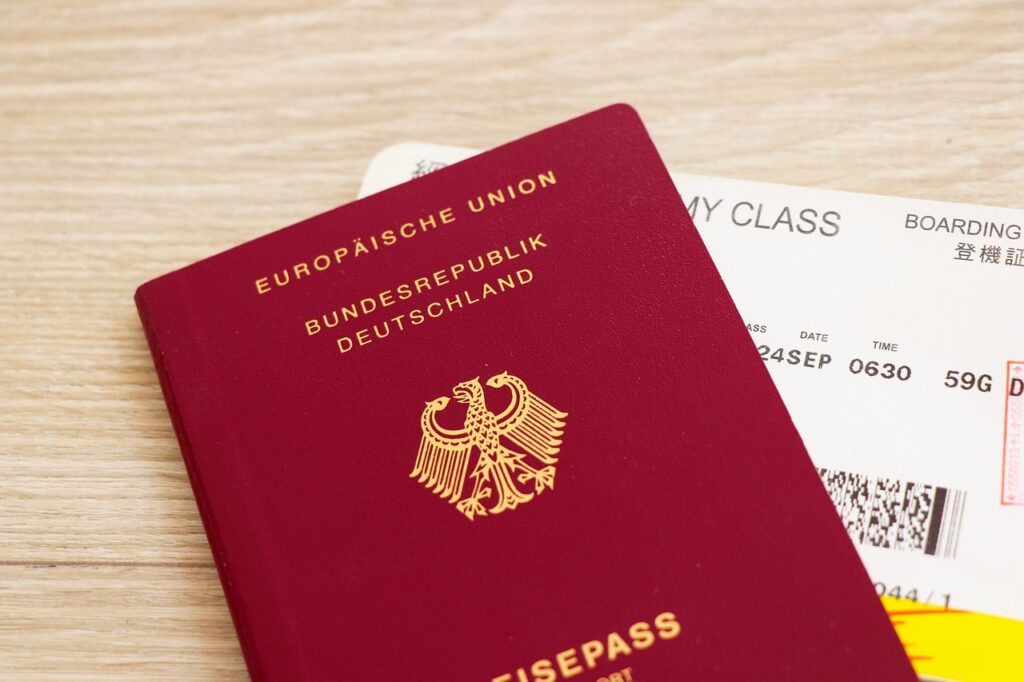Why Choose Thailand for Education?
The low cost of living, diverse culture, and delicious cuisine of Thailand are attracting more and more international students. Whether you’re attending a language school, a vocational school, or a university, obtaining a student visa is a crucial step in your academic journey in Thailand.
This comprehensive guide will teach you everything about the Thai student visa, from the requirements and eligibility to the application process and renewal tips.

The Thai Student Visa: Enough Said!
Students from other countries may apply for a Thai student visa, sometimes called a Non-Immigrant ED Visa, in order to attend universities in Thailand. Here are the items:
-
Courses taken at a four-year institution
-
Tutoring in languages
-
Internships and training programs affiliated with schools
-
Cultural exchange programs with a shorter time frame
Renewing your student visa, which allows you to legitimately stay in Thailand for educational purposes, is generally possible, depending on the duration of your study.
This Thailand Student Visa is Open to Whomever…
To qualify for a student visa to Thailand, you must meet the following criteria:
-
Own an offer letter from a prestigious Thai institution of education.
-
Have reached the age of 12 (under some visa categories, students younger than 12 may apply).
-
Prove that you can afford to pay for your whole stay.
-
Maintain a passport validity of six months or more.
-
Do not have any prior convictions and have never stayed in Thailand for an excessive amount of time.
Note: The qualifying requirements may differ from one school or institution to another, so it’s best to check with each individually before applying.
Categories of Thai Student Visa-Required Courses
1. Courses Leading to College Graduation
Many international students go to Thailand to pursue degrees in fields such as business, medicine, engineering, and hospitality, both at the undergraduate and graduate levels.
2. Language Teaching
It is possible to apply for a student visa to study English or Thai for an extended period of time at one of the numerous well-known language schools in the country.
3. Cultural Exchange Programs
Students taking part in cultural immersion or exchange programs in Thailand may also apply for student visas.
4. Education for a Career
Courses like massage therapy, cooking, or Muay Thai may also be eligible if they are provided by recognized colleges.
Things Needed for a Student Visa to Thailand
If you want to study in Thailand, you’ll need to gather the following documents:
-
Travel document (with a validity date of at least six months)
-
Visa application that has been completed
-
Most recently taken passport photos, usually 4 by 6 cm
-
Letter of acceptance from a school in Thailand
-
Verification of enrollment or receipt of payment
-
Bank statement showing a minimum of 20,000 THB (or its equivalent)
-
Optional but preferred: a police clearance certificate
-
Just a small percentage of consulates need a medical certificate
-
Cost of visa (varies per consulate, typically ranges from 2,000 to 3,000 THB)
Please be aware that the specific criteria may vary greatly from one Thai embassy or consulate to another.
The Thai Student Visa Application Process
Step 1: Get Entry
You need the approval of a Thai university or institution. Once accepted, they will send you an official letter to confirm your enrollment.
Step 2: Prepare Your Files
Gather the necessary documents, verify their accuracy, and have them translated into Thai or English if necessary.
Step 3: Submit Your CV
Apply for a student visa at the Thai embassy or consulate in your home country or a nearby country. You may be able to apply for a different kind of visa while in Thailand.
Step 4: Visa Interview
Some embassies may ask for an interview. Be prepared to discuss your educational plans and show financial capability.
Step 5: Obtain Your Visa
Processing times may range from three to ten business days. Upon acceptance, the Non-Immigrant ED visa will be stamped into your passport.
Thai Student Visa Validity and Extension
Initial Confidence
A Thai student visa usually lasts for 90 days. After arriving in Thailand, visit the immigration office to extend your visa, based on your course duration.
Visa Extension Process
-
Submit your visa extension application fifteen days before your visa’s expiry date.
-
Bring your most recent bank statements and evidence of enrollment.
-
Pay a fee of around 1,900 THB.
-
Depending on your program, you may get extensions for up to a year or in 90-day intervals.
The Rule for 90-Day Reports
One of the most important criteria for a Thai student visa is the 90-day reporting requirement. You must inform the Immigration Office of your present address every 90 days, either:
-
In person
-
Via mail
-
Online
Violation may result in a fine or the revocation of your visa.
Can I Work in Thailand While on a Student Visa?
It is not allowed to work on a Thai student visa. However, internships or training approved by the Thai Ministry of Education and part of your academic program are permitted.
To take up employment, a work visa and permit are required.
Student Visa for Thais Enrolling in Distance Learning Programs
Generally, you must attend in-person classes to qualify. Online-only programs are not eligible unless they’re part of a hybrid model with in-country instruction. Always consult your school and the Thai Immigration Bureau before applying.
Accepting Relying Parties (Dependents)
Students wishing to bring a spouse or children need to apply for a Non-Immigrant O Visa for dependents. Not all universities support dependent visas, and the process may be complex.
Approval for Re-Entry
Leaving Thailand without re-entry permission cancels your student visa. You must apply for re-entry:
-
Single-entry permit: ~1,000 THB
-
Multiple-entry permit: ~3,800 THB
Common Reasons for Visa Denials
Avoid these issues:
-
Missing or incorrect paperwork
-
Lack of financial proof
-
Unclear study intent
-
Past overstays or incomplete immigration records
Tips for an Efficient Workflow
-
Apply early: Start 4–6 weeks before your course begins.
-
Keep copies of all documents and receipts.
-
Stay in touch with your school’s international office.
-
Never provide false information — it can result in permanent disqualification.
Myth No. 1: Why Study in Thailand?
-
Cost-Effective: Living and tuition expenses are lower than in the West.
-
Cultural Immersion: Unique cultural experiences through festivals and temples.
-
Strategic Location: Easy access to countries like Vietnam, Malaysia, and Cambodia.
-
High Demand for Thai: Thai language immersion programs are widely popular.
Last Thoughts
A Thai student visa is an essential prerequisite for international students planning to attend a Thai university. You may fully immerse yourself in your academic journey and cultural experience in the Land of Smiles if you are well-informed about the application process, follow all visa requirements, and complete the necessary documentation in advance.
